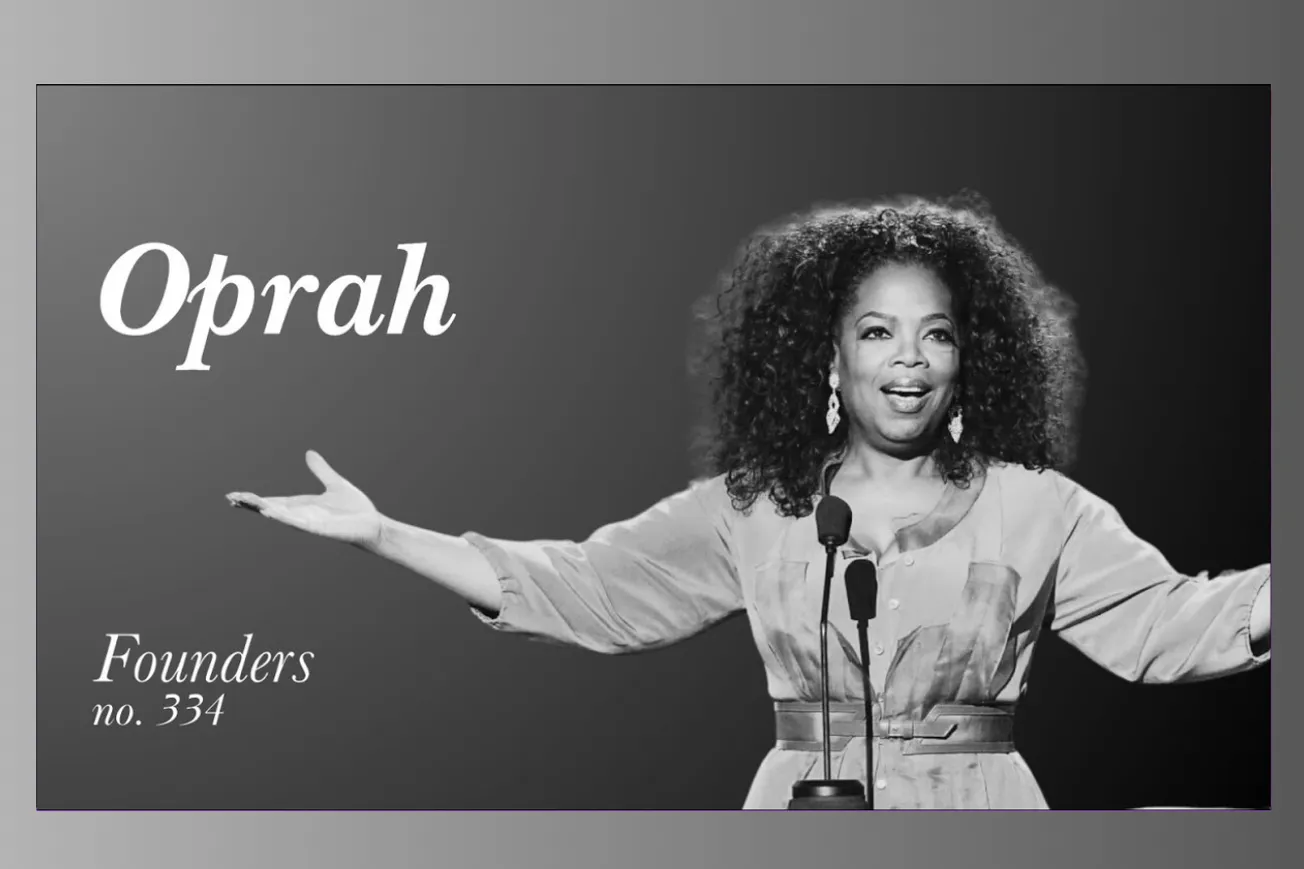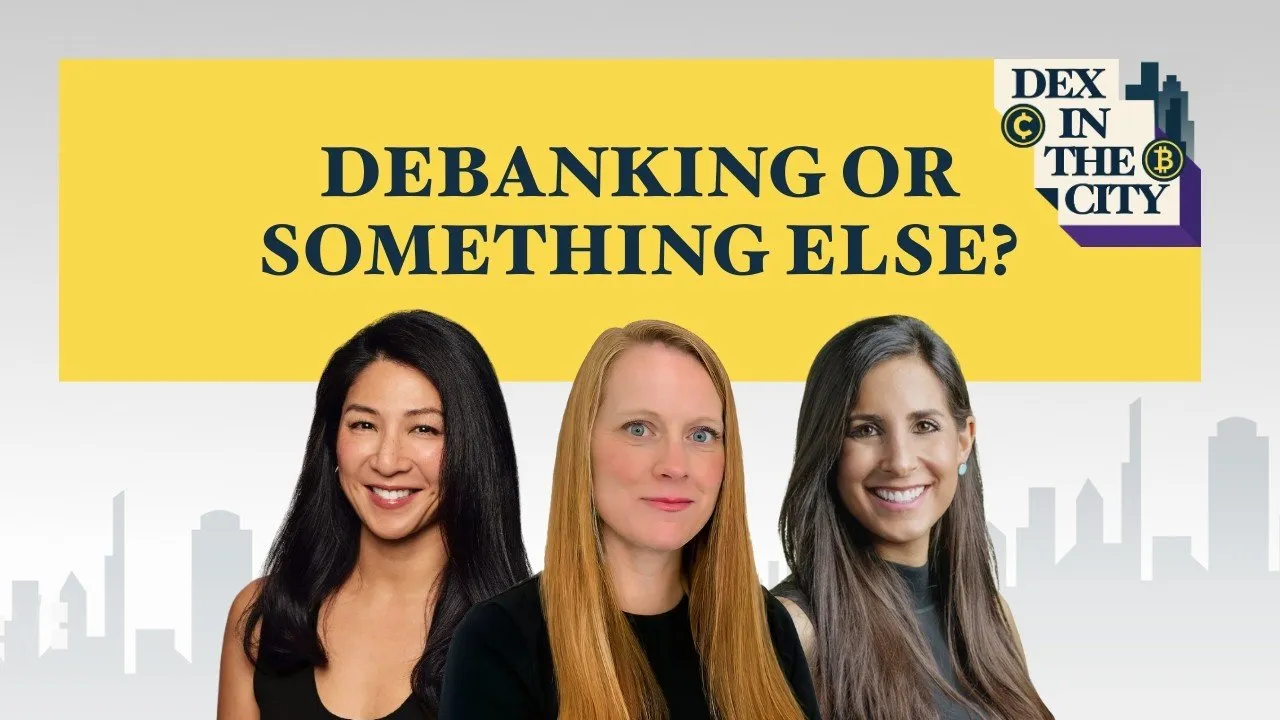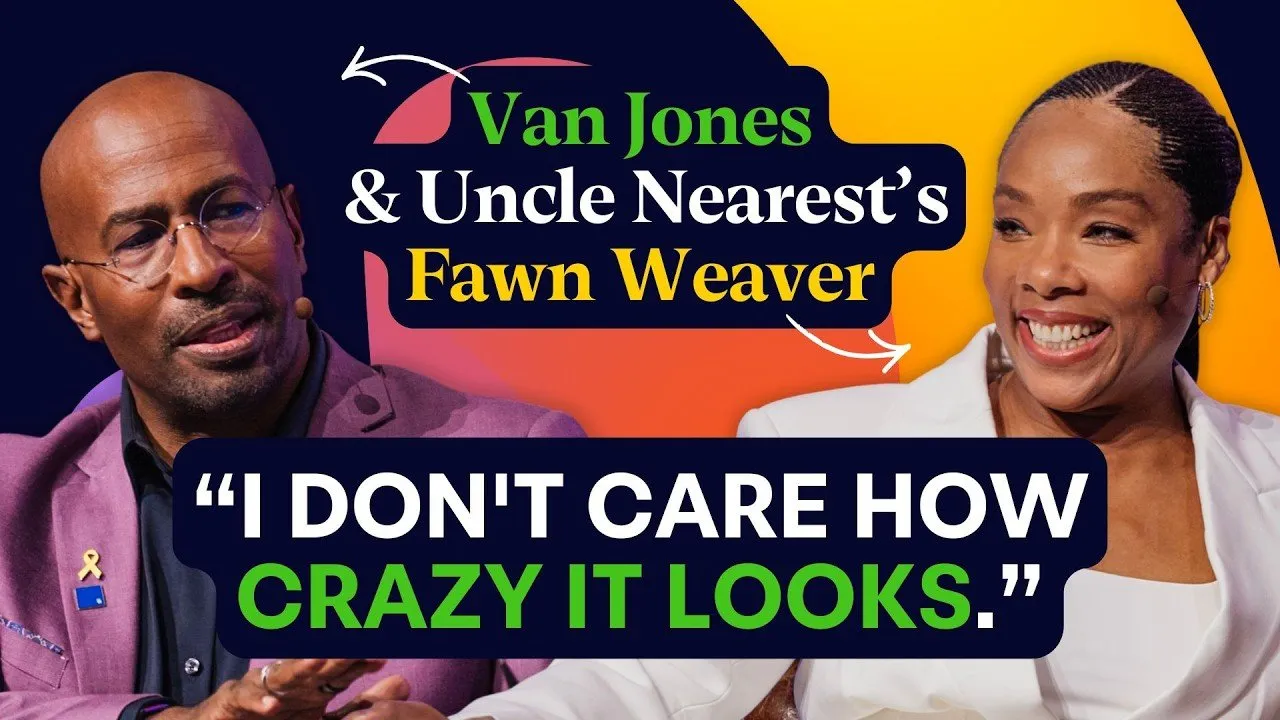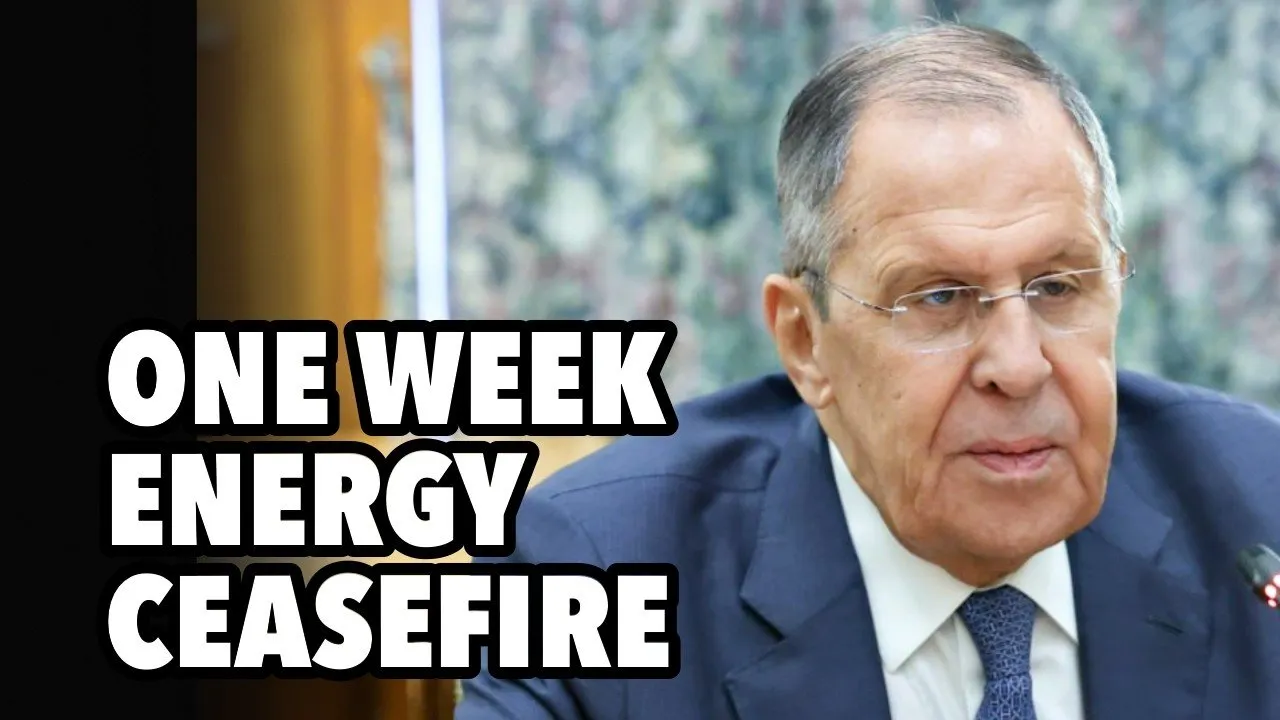Table of Contents
From sexual abuse survivor to media mogul: Oprah's journey reveals how authenticity, ownership, and relentless work ethic can transform the deepest pain into extraordinary purpose and wealth.
Timeline Overview
- 00:00–15:00 — Early Foundation and Trauma: Raised by grandmother in rural Mississippi without indoor plumbing, learning to read at age 3, experiencing sexual abuse from family members starting at age 9
- 15:00–30:00 — Discovery of Broadcasting Talent: Winning radio contest at 17, being hired immediately for radio work, transitioning to television at 19 while still in college
- 30:00–45:00 — Career Evolution and Authenticity: Struggling as news reporter, finding natural fit in talk show format, learning to be authentic rather than imitating Barbara Walters
- 45:00–60:00 — Business Transformation Through Ownership: Firing agent who was loved by network executives, partnering with Jeffrey Jacobs to gain show ownership and syndication rights
- 60:00–75:00 — The Color Purple and Visualization: Manifesting role in Spielberg film through intense desire and visualization, connecting with character's trauma through personal experience
- 75:00–90:00 — Building Media Empire: Competing against Phil Donahue's established dominance, understanding audience through personal authenticity, expanding beyond talk show format
- 90:00–105:00 — Success Philosophy and Work Ethic: Working 12-16 hour days, signing every check, maintaining control over business operations, finding purpose larger than money
- 105:00–120:00 — Legacy and Life Integration: Choosing to end show at peak success to pursue education mission, aligning personality with purpose, living from inside out
Key Takeaways
- Oprah's success began with intensive early preparation - public speaking from age 3 created natural ease with television cameras by age 19
- Sexual trauma and poverty created intense drive to achieve financial security and positional power where no one could harm her again
- The transition from high-paid employee to business owner through syndication rights transformed her from millionaire to billionaire status
- Authenticity became her greatest competitive advantage, allowing audience connection that polished competitors couldn't replicate
- Reading saved her life by showing alternative possibilities beyond her circumstances, inspiring lifelong commitment to education and literacy
- Visualization and intense desire helped manifest major opportunities, from The Color Purple role to business partnerships
- Working 12-16 hour days felt natural rather than burdensome because the work aligned with her authentic purpose and mission
- Business ownership required detailed involvement - she signed every check and understood all financial aspects despite having capable managers
- Following intuition over rational analysis led to her best decisions, while ignoring inner voice created problems and wrong directions
From Trauma to Unshakeable Self-Belief
Oprah's extraordinary confidence and self-belief emerged from surviving extreme childhood trauma while maintaining an inner conviction that her life would be different and better. The combination of early public speaking success and literary escape through reading created an unshakeable foundation for later achievement.
- By age 9, she had endured repeated sexual abuse from cousins, uncles, and family friends, leading to teenage pregnancy at 14 with a baby who died within a month
- Her response to trauma differed from typical patterns - rather than being destroyed, she channeled pain into fierce determination to gain control and power
- Early recognition as "gifted" from church congregation members who heard her speak at age 3 created positive identity despite horrific home circumstances
- Reading provided evidence of better possibilities, with books about "peasant children who overcame adversity" showing paths beyond her immediate reality
- The internal motto "my life won't be like this, it will be better" sustained her through poverty and abuse while watching her grandmother boil clothes
- Even in kindergarten, she wrote letters to teachers declaring "I do not belong here" and demonstrating advanced vocabulary that led to grade acceleration
- Her father's high standards and structure at age 14 provided the external framework needed to channel her drive into academic and social achievement
The Power of Authentic Human Connection
Oprah's competitive advantage came from refusing to hide her imperfections and vulnerabilities, creating unprecedented intimacy with audiences who had never seen such authenticity on television. This approach revolutionized talk show format and audience expectations.
- Initial attempts to imitate Barbara Walters felt unnatural and scripted, with focus on eloquent question phrasing rather than genuine listening
- The breakthrough moment came during a live newscast mistake where she mispronounced "Canada" and started laughing, creating her first authentic television moment
- News reporting felt like "an unnatural act" because it required emotional distance and objectivity that contradicted her naturally empathetic and engaging personality
- Talk show format felt "like breathing" from the first day because it allowed her to be completely herself without pretense or professional persona
- Her willingness to discuss personal trauma on air, including sexual abuse, created permission for audience members to acknowledge their own struggles
- The relationship with viewers differed from typical celebrity dynamics - people treated her like a friend rather than distant star because she revealed genuine humanity
- Understanding her audience was intuitive rather than researched because "there's just a million mes out there" - she was her own target demographic
From Employee to Capitalist: The Ownership Revolution
The pivotal decision to fire her agent and partner with Jeffrey Jacobs transformed Oprah from highly paid employee to business owner, multiplying her earnings from hundreds of thousands to tens of millions annually through syndication and production control.
- Warning signs appeared when three ABC executives praised her agent, suggesting his loyalty lay with the network rather than her interests
- Jacob's reputation as a "piranha" appealed to her because aggressive advocacy was needed to extract maximum value from her market position
- Initial dismissal of show ownership ("how the hell am I going to own my own show") demonstrated how limiting beliefs constrain possibilities
- Syndication rights became the key asset, with local stations paying $100,000 weekly in major markets because her show delivered valuable lead-in audiences for evening news
- Revenue sharing from advertising minutes across 200+ stations created recurring income streams that compounded over multiple years
- The business model generated $115 million in first two seasons and $196 million at peak, with production costs of only $30 million
- Ownership mentality extended beyond equity to operational control - she signed every check and understood all business details despite having capable managers
Visualization and Manifestation in Practice
Oprah's approach to visualization involved intense emotional connection to desired outcomes combined with consistent daily action toward goals, demonstrating how mental preparation can create extraordinary opportunities.
- Reading "The Color Purple" created such strong identification with the story that she distributed copies to strangers and talked constantly about the upcoming film adaptation
- Despite having no acting experience or Hollywood connections, she felt "intensely that I had to be a part of that movie" and "wanted it more than anything in the world"
- The role manifested when Quincy Jones saw her on television in his hotel room, leading to casting in the film that elevated her profile nationally
- Her visualization practice aligned with patterns seen in other high achievers like Steve Jobs, Arnold Schwarzenegger, and Estee Lauder
- The key elements included: vivid mental imagery of success, emotional intensity about outcomes, consistent daily action toward goals, and openness to unexpected pathways
- She distinguished between wishful thinking and true visualization, noting that authentic desire combined with preparation created "luck" when opportunity appeared
- The practice continued throughout her career, with major business decisions preceded by periods of quiet contemplation and internal alignment
Work Ethic as Identity and Healing
Oprah's extreme work schedule (12-16 hour days being "short" days) reflected both natural drive and psychological need for control and achievement after childhood powerlessness and trauma.
- College schedule included 8 AM-1 PM classes, 2-10 PM television work, and studying until 1-2 AM, demonstrating 16-hour days as normal from early career
- At peak success, 12-hour days felt insufficient: "what am I going to do with the rest of my day? I get home and I don't know what to do with myself"
- Work provided structure, purpose, and measurable achievement that contrasted sharply with childhood chaos and victimization
- The drive paralleled Arnold Schwarzenegger's philosophy: "when the day is 24 hours, what else did you do?" suggesting work as natural state rather than burden
- Evening routine involved reading in bed with "piles of books" for show preparation, blending work with personal passion for literature and learning
- Financial control obsession (signing every check, monitoring all expenses) reflected trauma response to early powerlessness and poverty
- The integration of work and identity meant success felt natural rather than stressful: "it doesn't even feel like work"
Reading as Liberation and Lifelong Practice
Books provided Oprah's escape route from circumstances, showing alternative possibilities and developing the intellectual foundation for later media success. Reading became both personal practice and professional mission.
- Learning to read at age 3 under grandmother's guidance "opened the door to all kinds of possibilities" and created early competitive advantage
- Childhood reading focused on stories about "peasant children who overcame adversity," providing models for her own potential transformation
- Discovery of Maya Angelou's "I Know Why the Caged Bird Sings" and Alice Walker's "The Color Purple" revealed that others had survived similar trauma
- Books offered proof that "there was another way, there was a way out, there was another kind of life" during darkest moments of abuse
- Reading habit continued throughout career with stacks of books always present for personal enjoyment and professional show preparation
- Her later focus on book clubs and literacy initiatives reflected belief that reading access could transform other lives as it had transformed hers
- The practice connected to Carl Sagan's description of books as "proof that humans are capable of working magic" through communication across time and space
Intuition Over Analysis in Decision-Making
Oprah's most successful decisions came from following internal guidance rather than external logic, while her mistakes occurred when rational analysis overrode instinctive knowledge about right directions.
- Early career tension between father's advice to keep high-paying anchor job and internal knowledge that "reporting wasn't for me"
- The decision to compete against Phil Donahue's established talk show dominance despite universal predictions of failure
- Choosing to end her show at peak success to pursue education mission, following internal sense that "this isn't it" after 25 years
- Steve Jobs shared similar philosophy: "intuition is a very powerful thing, more powerful than intellect in my opinion"
- The framework involved distinguishing between heart guidance and head rationalization, with heart decisions consistently producing better outcomes
- External pressure often contradicted internal guidance, requiring exceptional self-confidence to act against conventional wisdom
- Her "emotional GPS system" provided reliable navigation for major life and business decisions throughout her career
Building Platform for Purpose Beyond Profit
Oprah's greatest satisfaction came from using media success to serve larger mission of human uplift and education, demonstrating how authentic purpose can enhance rather than conflict with business success.
- Early recognition that "I always wanted to be a minister and preach and be a missionary" found expression through television platform
- The show functioned as "ministry" focused on helping people recognize their responsibility for their own lives despite external circumstances
- Fame provided "foundation to be heard" rather than end goal, with influence used to "ask questions that really matter"
- Business success enabled focus on meaningful work: money "allows you to concentrate on other things that really matter"
- The platform reached nearly 30,000 interview subjects over 25 years, with universal human need for validation being central theme
- Decision to end show at peak reflected commitment to purpose over profit, transitioning to education-focused initiatives
- Her advice "align your personality with your purpose and nobody can touch you" summarized the integration of authentic self with meaningful mission
Conclusion
Oprah Winfrey's transformation from abused child to media mogul demonstrates how trauma can become the foundation for extraordinary achievement when channeled through authentic purpose and relentless preparation. Her story reveals that sustainable success requires alignment between personal values, natural talents, and meaningful mission. The combination of early skill development, business ownership, authentic communication, and purposeful platform creation shows how individual healing can scale into societal impact. Her example proves that the greatest competitive advantages often emerge from willingness to be vulnerable and authentic rather than polished and perfect.
Practical Implications
- For Personal Development: Early trauma or disadvantage can become competitive advantage when transformed into drive for achievement and service to others
- For Business Strategy: Ownership of core assets (content, distribution, brand) creates exponentially greater wealth than high employee salaries
- For Leadership Communication: Authenticity and vulnerability create deeper connections with audiences than polished professionalism
- For Decision-Making: Following intuitive guidance over rational analysis often leads to breakthrough opportunities that logic cannot predict
- For Work Integration: When work aligns with authentic purpose and natural talents, extreme effort feels energizing rather than exhausting
- For Media and Influence: Understanding your audience deeply (often by being your audience) creates more effective communication than market research





